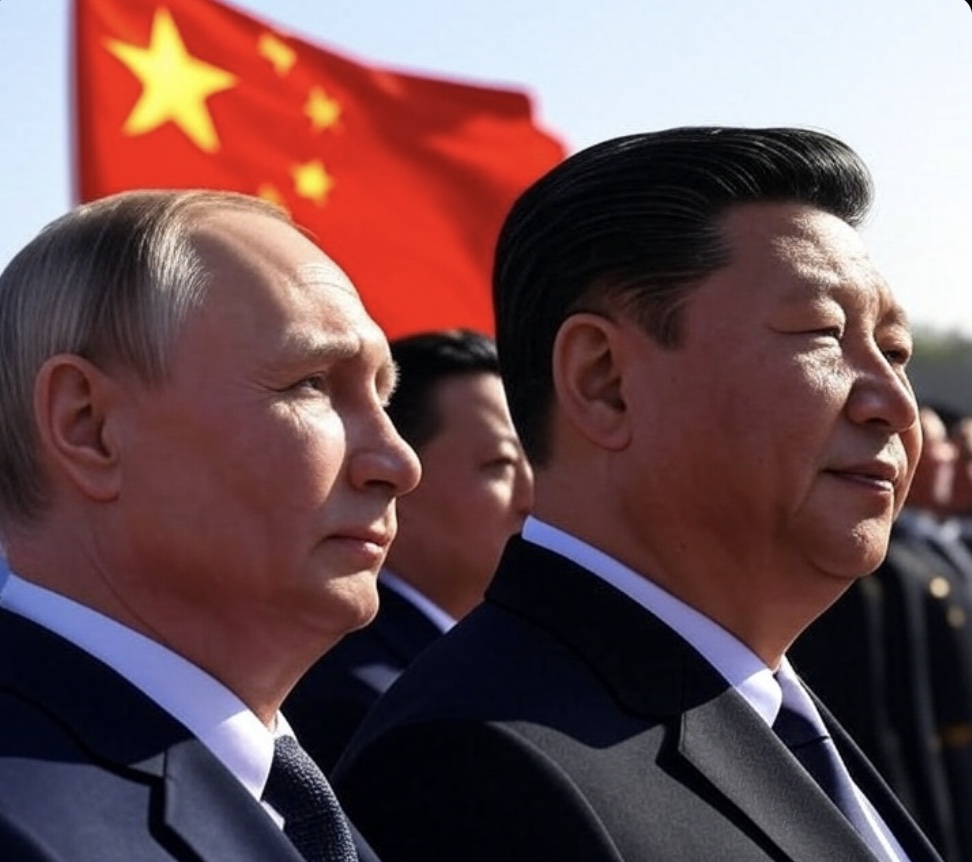


Xi Jinping has ordered the largest military spectacle in China’s modern history, ostensibly to mark the 80th anniversary of Japan’s defeat in the Second World War. But this is no solemn act of remembrance the world will witness in Beijing. It is theatre of menace.
Hypersonic missiles, swarms of drones, and stealth aircraft will roll past Tiananmen Square in precise formation, each one a gleaming reminder of Beijing’s determination to be not just a regional heavyweight but a global hegemon. The message is blunt: China has the hardware, the ideology, and the will to contest the West.
Yet what gives this parade its true significance is not the weapons, but the guests. Vladimir Putin will be there, fresh from pounding Ukraine into rubble, desperate to prove Russia is no pariah. Beside him sits Kim Jong Un, the tinpot tyrant whose starving population funds his nuclear tantrums. Together with Xi, they form a tableau that tells the world more than any speech: the 21st century’s new axis of evil is no longer embryonic. It is here, it is strutting, and it is unapologetic.
Authoritarian regimes often reveal their intentions by the company they keep. Xi could have marked this anniversary quietly, as his predecessors did. Instead, he has turned it into a martial pageant and invited the world’s most notorious strongmen to bask in his reflected glory. The symbolism is deliberate. These leaders share little except their hostility to the West, yet that is enough to bind them.
Putin gains respite from isolation, a stage to show he is not friendless. Kim gains recognition he craves but does not deserve. And Xi gains what he most covets: the image of China as the hub around which lesser despots orbit.
Xi dresses all this up in talk of “multipolarity” — a world not dominated by one superpower but balanced by many. It sounds almost reasonable. But in practice, it means carving up the globe into spheres of domination, each patrolled by its local autocrat. For Moscow, that means trampling Ukraine. For Pyongyang, it means terrorising Japan and South Korea with missile tests. For Beijing, it means intimidating Taiwan and bullying the South China Sea.
This is not balance. It is a doctrine of coercion, dressed up as diplomacy.
Western capitals should not shrug this off as a vanity project. History offers warnings. In the 1930s, parades in Berlin and Rome provided the choreography of catastrophe, signalling alliances that would plunge the world into war. Tomorrow’s display in Beijing is not yet the same — but the echoes are unmistakable.
To dismiss Xi, Putin and Kim as blustering showmen is comforting but dangerously naïve. Each has already demonstrated his willingness to use force. Each is emboldened by Western hesitation. And each understands that appearing together amplifies their menace.
Meanwhile, Europe slumbers. Defence budgets inch upwards but rarely match the rhetoric. NATO talks of readiness while struggling to replenish stockpiles. America remains the indispensable power, yet is distracted and divided, its gaze turning inward.
This axis understands the opportunity. By presenting crises on multiple fronts — in Ukraine, the Taiwan Strait, the Korean peninsula — they hope to stretch Western resolve thin. If democracies falter, the autocrats win.
So let us be clear. Tomorrow’s parade is not about Japan, nor about memory, nor about honouring the dead. It is about the future these men wish to impose: a world where might dictates right, where alliances of thugs challenge alliances of democracies, where freedom itself is a nuisance to be stamped out.
The phrase “axis of evil” once described rogue states dabbling in terror. Today it fits a new coalition far more powerful, armed not just with missiles but with ambitions to rewrite the global order. Xi, Putin and Kim are telling us plainly who they are and what they intend. We should believe them.
And here is the warning the West cannot ignore: the time for tentative measures is past. Democracies must marshal their strength, unite their resolve, and act with the same clarity and decisiveness that these tyrants display without hesitation. Investment in defence is not optional; strategic alliances are not negotiable; vigilance is not a virtue but a necessity.
Tomorrow, the world will watch the parade of tyranny in Beijing. Let us also show that freedom has its champions, its armies, and its unwavering will. History will judge harshly those who do not.
You must be logged in to post a comment.
Russia’s latest mass strike on Kyiv tests the meaning of Washington’s rhetorical shift